Difference Between Complaint and FIR
Complaint
1. Complaint is defined under section 2(d) of CrPC.
2. A complaint is an allegation that is made orally or in writing to a magistrate.
3. A complaint may relate to a cognizable offence or non-cognizable offence.
4. A magistrate takes cognizance of an offence on a complaint made to him. But he can not do so in FIR.
5. A complaint does not include the report of a police officer.
FIR
1. FIR is given under Section 154 of CrPC.
2. FIR is given to an officer in charge of a police station.
3. FIR is related to a cognizable offence.
4. On FIR, the magistrate can take cognizance.
5. The FIR of an offence may be given by anybody, including a police officer.
Here is a side by side difference between complaint and FIR under CrPC.
Difference Between Trial and Inquiry
First thing to understand, is that, both trial and inquiry are judicial proceedings. Now let us look at five differences between trial and inquiry under CrPC.
Trial
Inquiry is different from trial. Trial is not defined in the code. Trail was defined in the code of 1872, but it has not been defined in the subsequent code 1882, 1898, and 1973.
1. A trial is always for an offence.
2. A trial ends in acquittal or conviction of an accused.
3. Trial is the examination and determination of cause by a judicial tribunal.
4. Trial follows inquiry.
5. Trial is the third stage.
Inquiry
1. An inquiry does not necessarily relate to only offences.
For Example, Inquiry made in disputes relating to an immovable property with regard to the possession, public nuisance, or for the maintenance of wives.
2. An inquiry into an offence never ends in a conviction or acquittal.
3. Inquiry includes every inquiry other than a trial conducted by magistrate or court.
4. Inquiry precedes a trial.
5. Inquiry is the second stage in a criminal case.
Here is a side by side difference between trial and inquiry under CrPC.
Difference Between Investigation and Inquiry
Investigation
Section 2(h) of the Criminal Procedure Code (CrPC) talks about investigation.
1. An investigation is made by a police officer or by some person authorised by a magistrate.
2. The object of an investigation is to collect evidence for the prosecution of the case.
3. An investigation is the first stage of a criminal case.
4. Investigation is not a judicial proceeding.
Inquiry
Section 2(g) of the Criminal Procedure Code (CrPC) talks about Inquiry.
1. An inquiry is made by magistrate or court. Investigation is never made by magistrate or court.
2. The object of inquiry is to determine the truth or false of certain facts with a view to take further action.
3. An inquiry is the second stage of a case.
4. Inquiry is a judicial proceeding.
Here is a side by side difference between investigation and inquiry under CrPC.
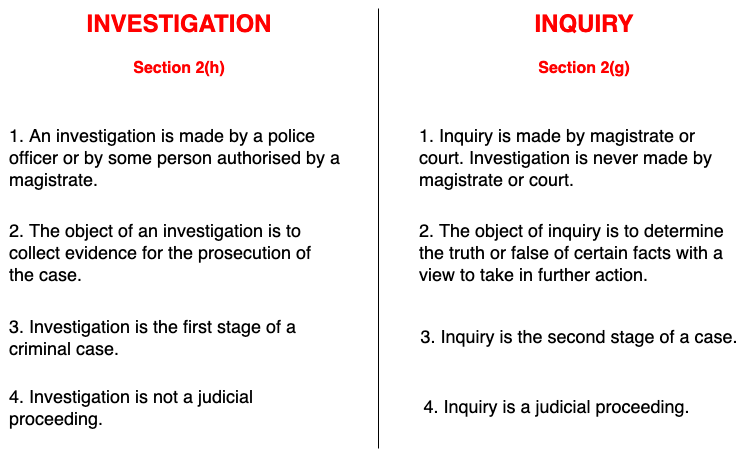
Related: When the investigation cannot be completed in 24 hours? Section 167 CrPC Explained
- Article 334A of the Constitution of India - 14th April 2024
- Article 332A of the Constitution of India - 14th April 2024
- Article 330A of the Constitution of India - 14th April 2024

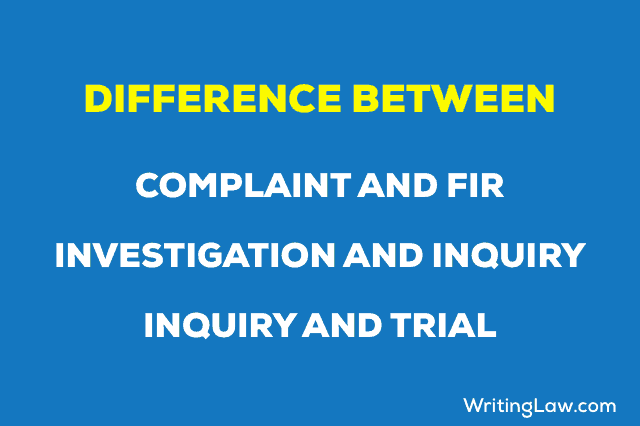

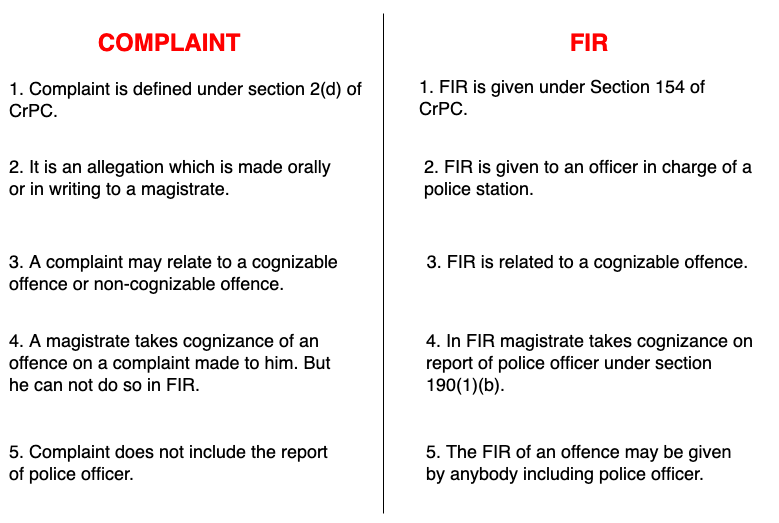
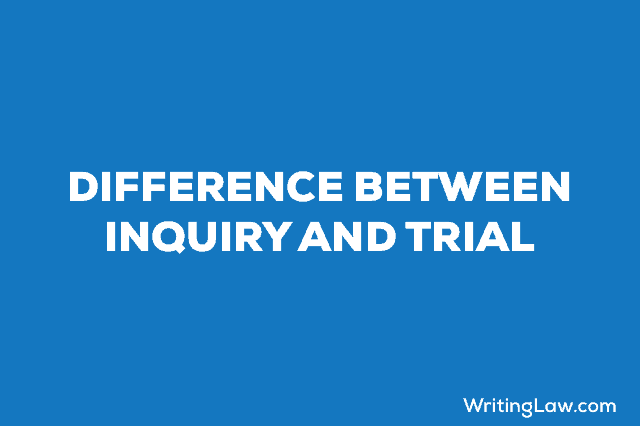

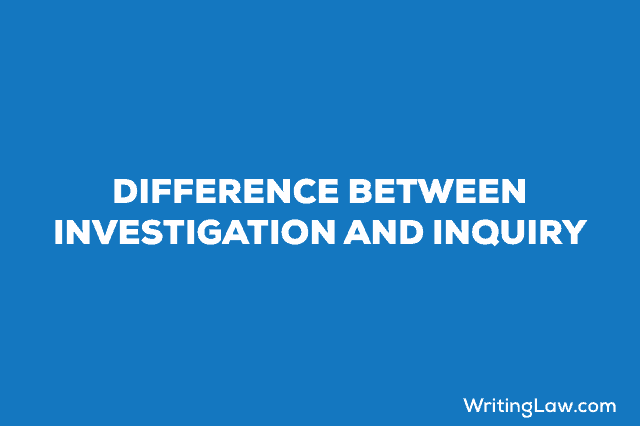






Excellent and helpful 10x alot
Happy to know this.
Informative and easy to understand. Keep it up.
Good to read your thoughts.
Nicely done and useful
Happy to read your words.
Very helpful and short and steady notes to remember and recall. Thanks a ton for providing these kinds of shortcuts to make law ease to study an learn. Looking forward for more like this.
Sure. There will be more such law notes regularly. Glad to read your comment.
Very supportive content
Glad you like it.